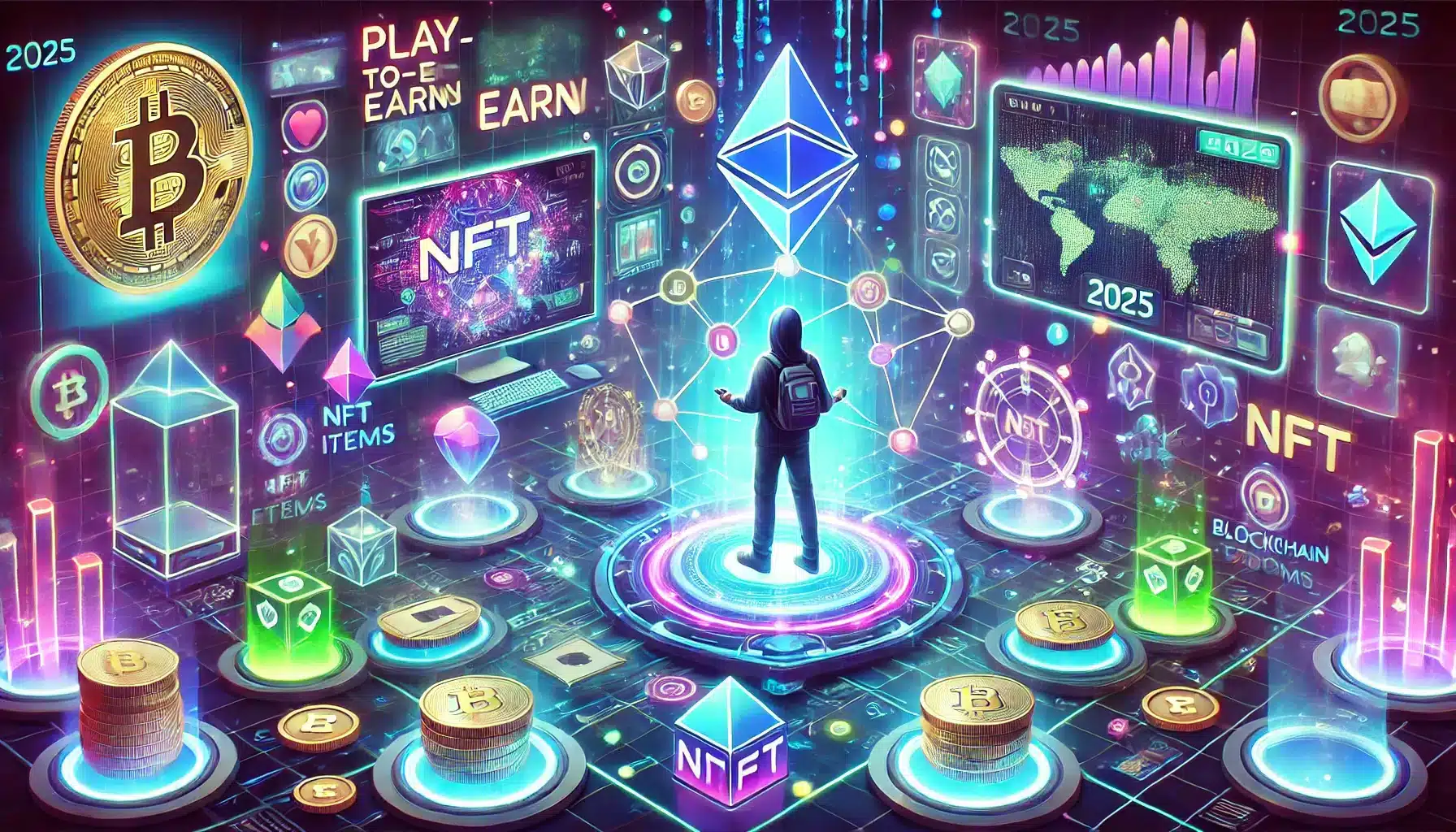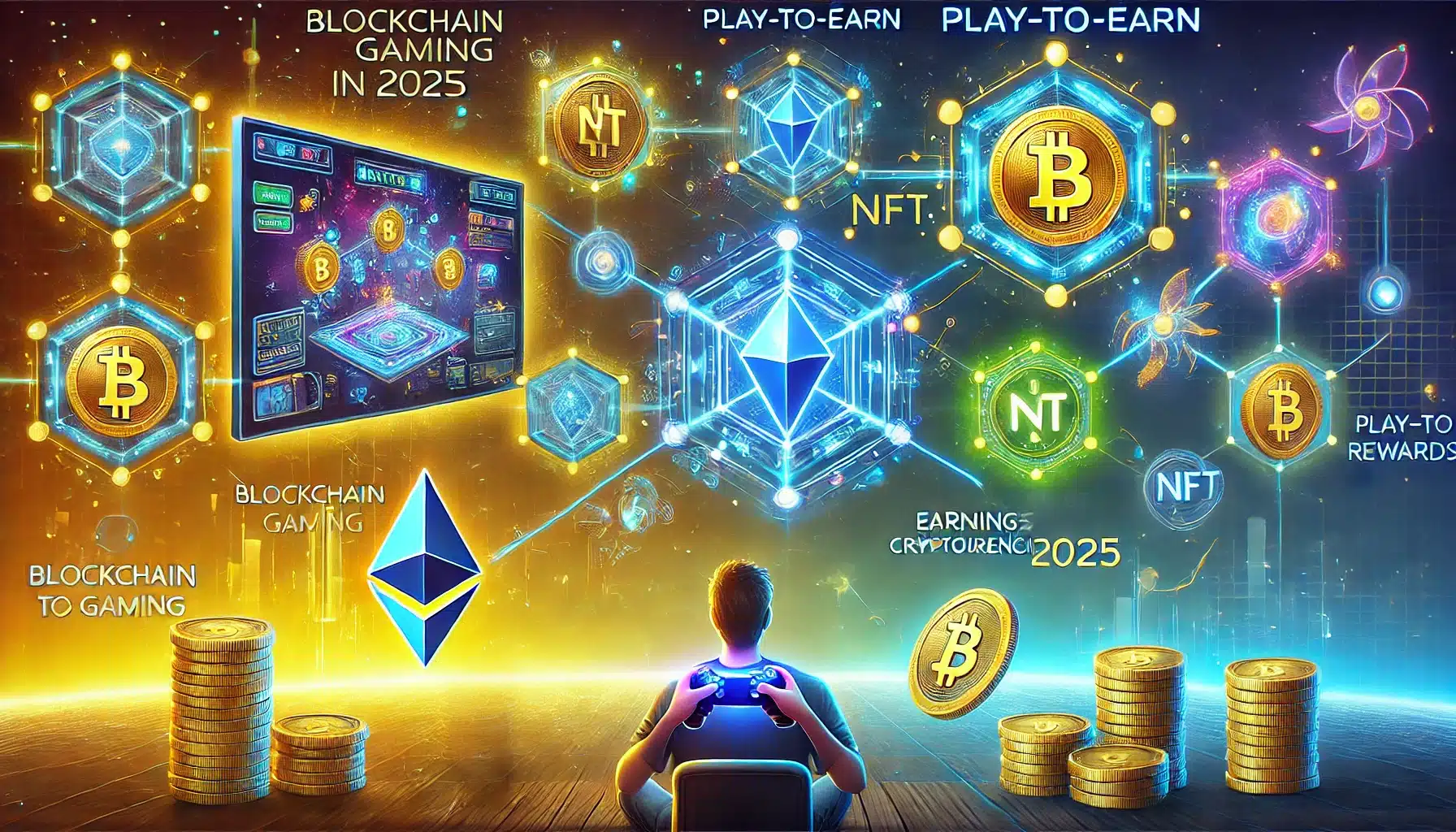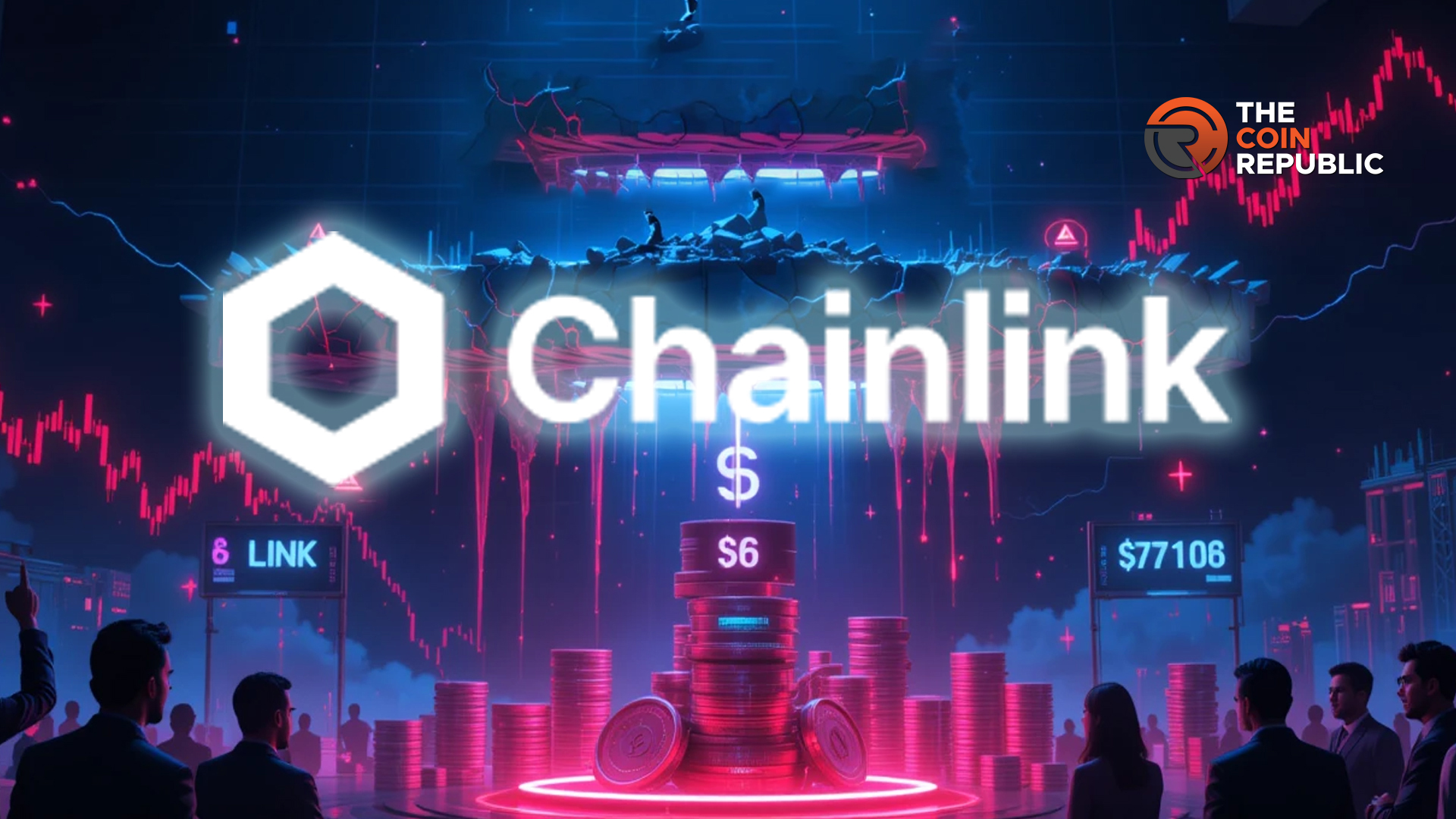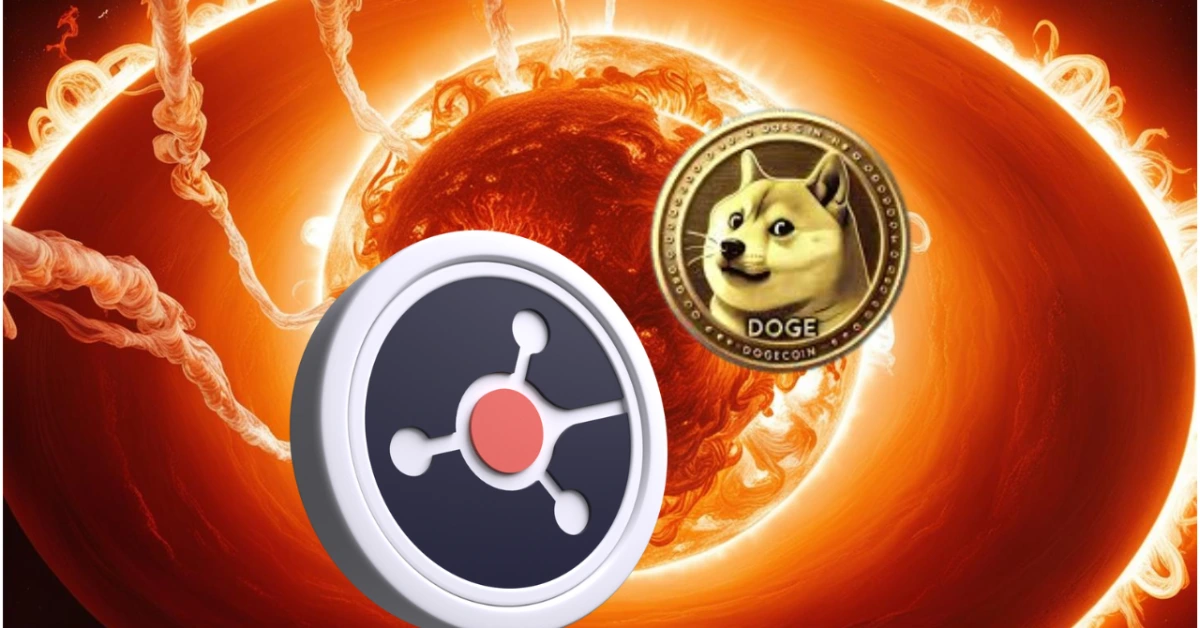 CaryptosHeadlines Media Has Launched Its Native Token CHT.
Airdrop Is Live For Everyone, Claim Instant 5000 CHT Tokens Worth Of $50 USDT.
Join the Airdrop at the official website,
CryptosHeadlinesToken.com
CaryptosHeadlines Media Has Launched Its Native Token CHT.
Airdrop Is Live For Everyone, Claim Instant 5000 CHT Tokens Worth Of $50 USDT.
Join the Airdrop at the official website,
CryptosHeadlinesToken.com
The gaming industry has always been at the forefront of innovation, and with the rise of blockchain technology, it is undergoing a profound transformation. By 2025, Play-to-Earn (P2E) models, NFT gaming, and blockchain integration will redefine the gaming landscape, creating new opportunities for players and developers alike. These advancements are not only reshaping gaming experiences but also building sustainable digital economies.
The Role of Blockchain in Gaming
Blockchain technology is revolutionizing gaming by introducing transparency, fairness, and decentralized ownership. Through blockchain, players can truly own their in-game assets, which are often represented as non-fungible tokens (NFTs). These assets are stored securely on decentralized ledgers, ensuring that players retain control over their digital property without reliance on centralized game developers.
Additionally, blockchain enhances gaming ecosystems by enabling interoperability between games. Players can transfer assets and currencies across platforms, paving the way for a more connected and inclusive gaming environment. Security is also significantly improved, reducing risks such as fraud and data breaches.
Rise of Play-to-Earn Models
The Play-to-Earn (P2E) model is a game-changer in the industry. Unlike traditional gaming, where players invest time and money without tangible returns, P2E allows players to earn rewards in the form of cryptocurrencies or NFTs. Games like Axie Infinity and The Sandbox have showcased the potential of this model, enabling players to monetize their gaming skills.
P2E creates a dual-purpose experience: entertainment and income generation. For players in developing regions, this model has even provided a primary source of income, demonstrating its broader socioeconomic impact.
NFT Integration in Gaming
NFTs play a pivotal role in blockchain gaming by introducing the concept of digital scarcity. In-game items, characters, and skins can be minted as NFTs, giving them real-world value and rarity. Players can trade, sell, or rent their NFTs in secondary marketplaces, creating additional revenue streams.
For developers, NFTs open doors to new monetization strategies, such as limited-edition items or collaborative assets with other games. The ownership and transferability of NFTs also empower players to invest in their favorite games without fear of losing their assets if the game shuts down.


Building Digital Economies Through Blockchain Games
Blockchain games are at the forefront of creating thriving digital economies. By integrating tokenomics, in-game currencies acquire real-world value, blurring the line between gaming and finance. Players can use these tokens for purchases, upgrades, or even trading on decentralized exchanges.
The concept of a unified gaming metaverse is becoming increasingly feasible, where players can use assets and currencies across multiple games seamlessly. This interconnected ecosystem fosters collaboration and competition, enriching the gaming experience.
Challenges Facing Blockchain Gaming
Despite its potential, blockchain gaming faces challenges that must be addressed:
- Scalability: Current blockchain networks may struggle to handle the high transaction volumes of popular games. Solutions like Layer 2 protocols and more efficient consensus mechanisms are needed.
- Regulation: The integration of cryptocurrencies and NFTs in gaming raises legal and regulatory concerns. Clear guidelines are essential to ensure growth without stifling innovation.
- Gameplay vs. Rewards: Balancing the core gameplay experience with economic incentives is critical. Games that overly focus on rewards risk alienating players seeking entertainment.
The Future of Blockchain Gaming
The future of blockchain gaming is bright, with mainstream adoption expected by 2025. Traditional game developers are increasingly exploring partnerships with blockchain platforms to integrate decentralized technologies. The gaming industry’s evolution towards ownership, inclusivity, and innovation will likely lead to more immersive and rewarding experiences.
As blockchain games mature, they will continue to blur the boundaries between entertainment and economics, creating a dynamic ecosystem where players, developers, and investors can thrive. The rise of Play-to-Earn and NFT gaming is not just a trend but a fundamental shift in how games are played, owned, and valued.
Follow us on Twitter and LinkedIn and join our Telegram channel to get instant updates on breaking news!














